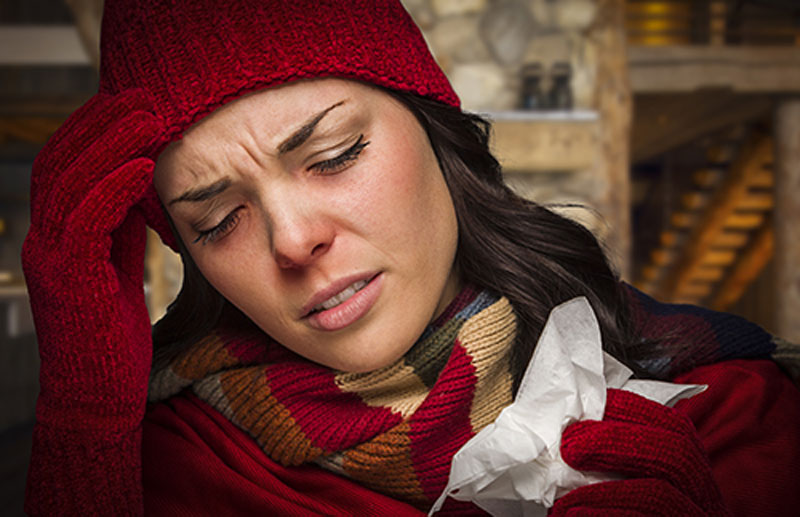Growing up, you may have been told by your mother or grandmother that being outside in cold weather will make you sick. While this theory has been mostly debunked, that doesn’t change the fact that people are still more likely to get a sinus infection during winter than other times of the year. But why?
During the cold weather months, people spend more time indoors with the windows sealed, so they are more likely to breathe the same air as someone who is sick. As people are exposed to others for prolonged periods of time, their exposure to germs increases. The more time spent inside at work or at home, the more likely people are to touch more surfaces, cough in more rooms, and sneeze in more hands. As a result, cold and flu viruses are more likely to be transmitted to others and the occurrence of infection increases. Being sick with the cold or flu can lead to excess mucus in the nasal passages and a weakened immune system, which can result in increased cases of sinus infections as well.
It is also important to consider the effect of heaters on the nasal passages. Winter air is naturally drier than summer air. When central heating is used, it creates an even drier environment, resulting in increased dehydration and thicker mucus. This thick mucus is much more likely to become lodged in the sinuses and can cause pressure and infection.
People are often exposed to more allergens during the winter, which can further exacerbate problems. Christmas trees and garlands frequently introduce mold into a home’s air. Holiday decorations that have been stored for most of the year can accumulate dust that is reintroduced during the winter. Scented candles and home fragrances that are often used this time of year can increase irritation. Because pets are more likely to be spending longer periods of time indoors, they can also contribute to sinus problems.
To avoid sinus infections this season, be diligent about washing your hands and keeping household surfaces clean. Stay hydrated by drinking plenty of fluids, and try using a humidifier during the night. Keep carpets and furniture free of pet hair and dust by vacuuming regularly. If you begin to experience sinus irritation, stay home to reduce exposure to others. Getting plenty of rest, using decongestants, and performing nasal irrigation can ease the discomfort that usually follows a sinus infection.




